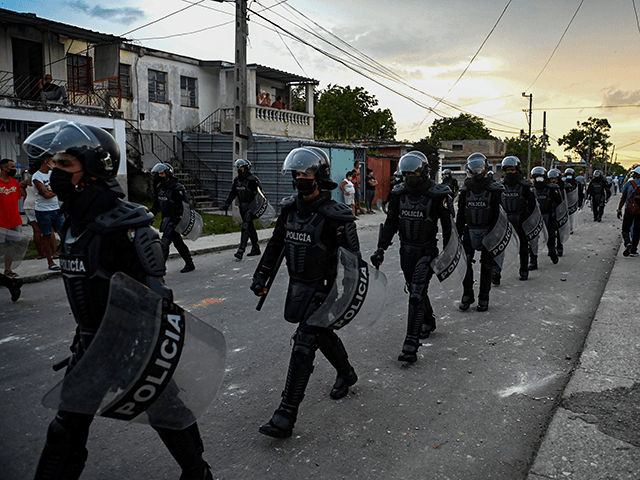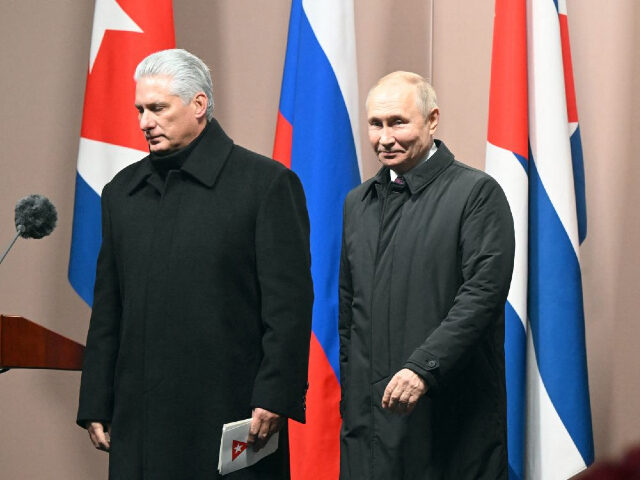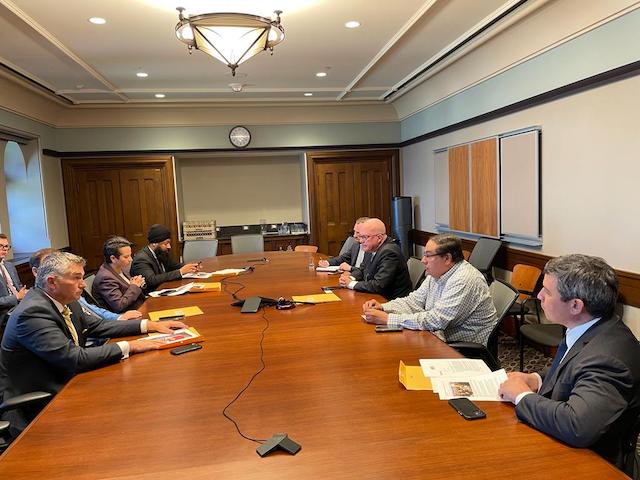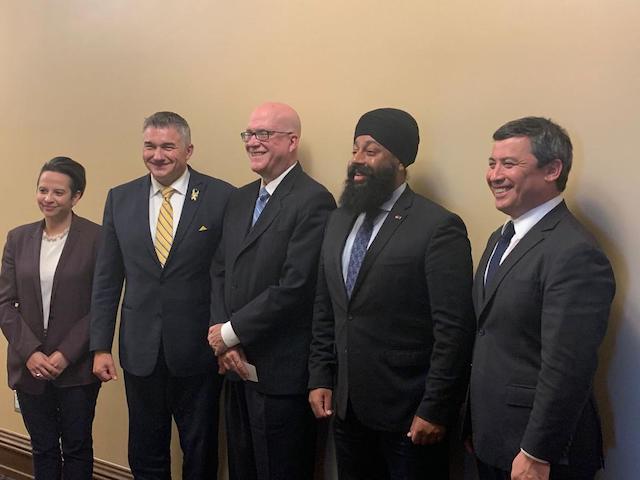Canadian and European business has for decades kept the communist Cuban government afloat. Leaders in both regions are reconsidering their ties to the island, however, as the Castro regime becomes increasingly visible as an ally in the world’s most harrowing conflicts.
Last week, I sat down with senior Parliamentarians in Ottawa, the Canadian capital, to discuss the profoundly concerning actions of the regime in Belarus and Ukraine and the presence of China on the island. I am delighted to share that a growing number of Canadian legislators in Ottawa understand the need to end the status quo.
A reading of recent events in Cuba tells the story. Senior representatives of the island’s communist regime visit Russia, praising bonds of solidarity. China is in Cuba, providing elite military units with specialized training. Iran’s president boasts cooperation with counterparts in Venezuela, Nicaragua, and Cuba while trumpeting anti-American rhetoric. To top it all off, credible foreign social media and news accounts indicate that troops from the Havana regime’s Ministry of the Interior are training in Belarus. Some are even reportedly fighting in Ukraine under the highly dubious pretext of being volunteers while coincidentally being bankrolled by the Kremlin. These actions show an assertive regime continuing the Castro legacy of covertly projecting hard power across the globe to achieve its goals.
The outlook is even more distressing when one looks inward into the regime’s treatment of the Cuban people. And yet the European Union continues to prop up the communist rulers of the island to the tune of €155 million. The Canadian government is unfortunately guilty of the same through taxpayer dollars it contributes to the Club of Paris, an institution meant to provide loans to developing nations. Canadian companies also have a significant presence in Cuba, especially in mining, and just in January 2023, Canadians accounted for 52 per cent of all tourists entering Cuba. Justin Trudeau’s admiration and personal relationship with the Castro family (he has called Raúl Castro “my friend”) began with his father, Pierre Trudeau, in the 1970s. After decades of friendship and reported “lengthy conversations,” Pierre made Fidel Castro one of his honorary pallbearers at his funeral.
But the winds of change are blowing, and courageous Cuban voices both at home and abroad are picking up steam. In my conversations with lawmakers in Ottawa, I expressed my dismay over how Canada and European governments subsidize the Havana dictatorship through the Club of Paris, even forgiving $8 billion of debt. This message is the same one I recently shared with the Swedish and Lithuanian parliaments, both of which understood the need for change. Both bodies have also spoken in favour of reviewing the EU’s Cooperation Agreement (PDCA) with the regime, which is another means of funnelling public money to the island.
After my meeting with Melissa Lantsman, Canadian conservative co-deputy leader and shadow government coordinator, she informed The Catholic Register that her party had “pledged support for the Cuban people” and that they “will continue to hold our own government to account to ensure that Canada’s role in the region aligns with our values.” Another Canadian legislator, Stephanie Kusie, said that our meeting helped her understand that “the [Cuban] regime has only become stronger and gotten more ruthless in the implementation of their ideology.” Kusie also believes that Canada should join other countries in condemning the Castro regime’s human rights violations and alliances with Russia and China.
Momentum is growing in the area of clear and logical thinking from groups around the world when it comes to communism and Cuba.
The EU Parliament and the Parliamentary Assembly of the Council of Europe have asked for a review of the PDCA, as have a coalition of over 100 legislators from across Latin America.
Now is the time to ratchet up our efforts and show our support for the Cuban people.
Each day, mothers, students, workers, and other citizens from all walks of life are risking their lives to speak out in response to Cuba’s worsening state of human rights. They are the main actors of social change – the protagonists in the drama that is Cuba. The protests have not ceased – in fact, have increased in frequency, according to monitor groups – since the historic pro-democracy protests of July 11, 2021. They need to hear from us to advance their 64-year-long struggle for justice and freedom from oppression.

Riot police walk the streets after a demonstration against the government of President Miguel Diaz-Canel in Arroyo Naranjo Municipality, Havana on July 12, 2021. (YAMIL LAGE / AFP) (Photo by YAMIL LAGE/AFP via Getty Images)
“Cubans don’t have access to enough food, medicines, and electricity, but they are protesting out in the streets to demand freedoms,” Luis Zuñiga, a political prisoner for 19 years and member of the Assembly of the Cuban Resistance, told me. “I am making a desperate call to the government and people of Canada for assistance for the freedom of Cuba.”
It is incoherent to champion human rights and decry Russia’s invasion of Ukraine while, at the same time, propping up Moscow’s closest ally in the Western Hemisphere who is vocally supporting the invasion.
The future of Cuba can be extremely bright. Already known for being a resilient and industrious people, imagine what my Cuban compatriots can do with freedom and equal opportunity. Isn’t this same promise at the core of the Canadian experience? Continuing to prop up a totalitarian regime defies all logic and rhetoric related to the values and “solidarity” so often championed by Canada’s prime minister. The actions of some European nations and the Canadian government are an obstacle to the hopes and dreams of the Cuban people. I appeal to you, the Canadian people, to help us in our struggle for freedom.
Dr. Orlando Gutierrez-Boronat is a writer, educator, and co-founder and spokesman for the Cuban Democratic Directorate (Directorio). Directorio was part of the Patriotic Committee organizing October 2020’s Anti-Communist Caravan in Miami.



COMMENTS
Please let us know if you're having issues with commenting.